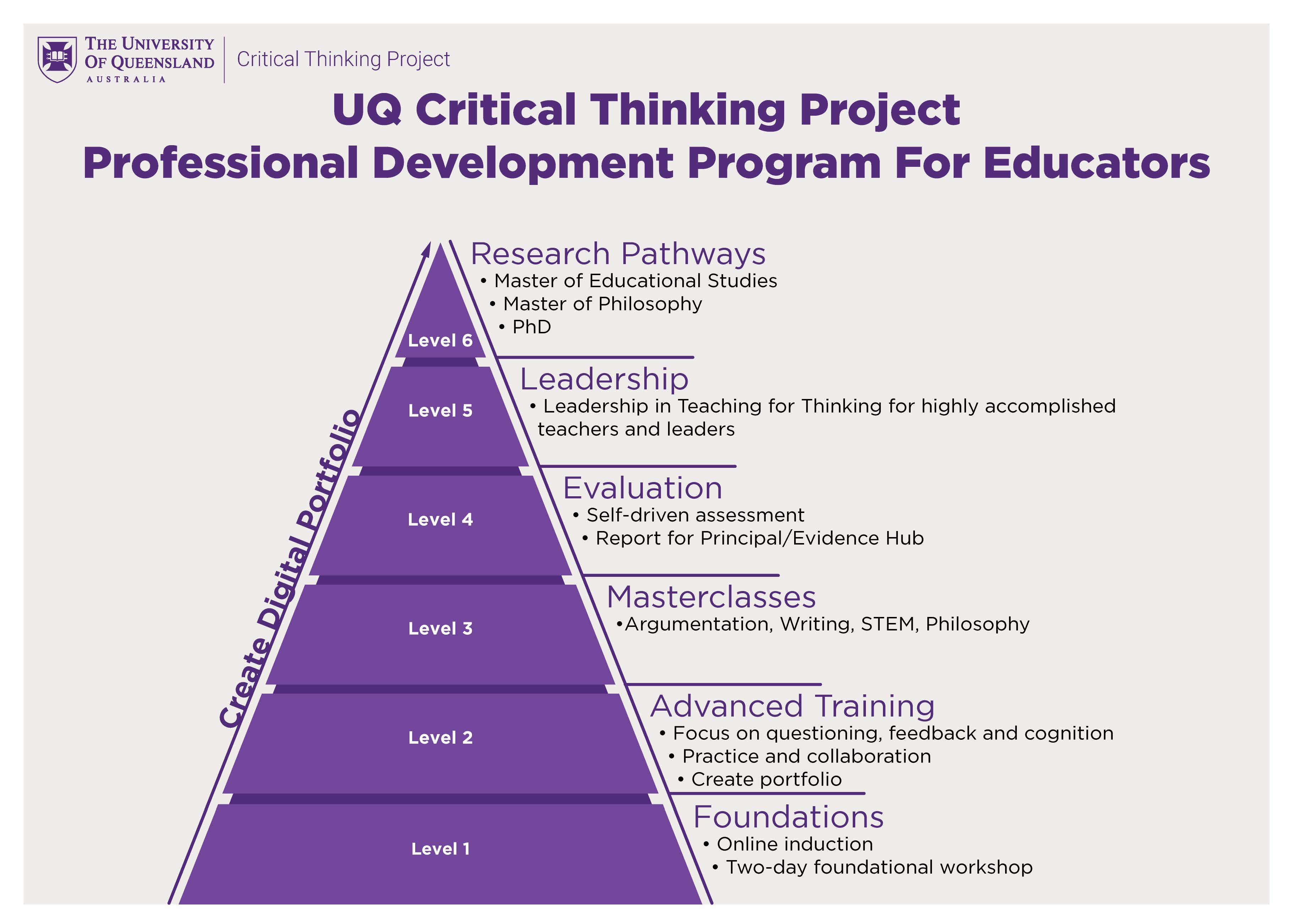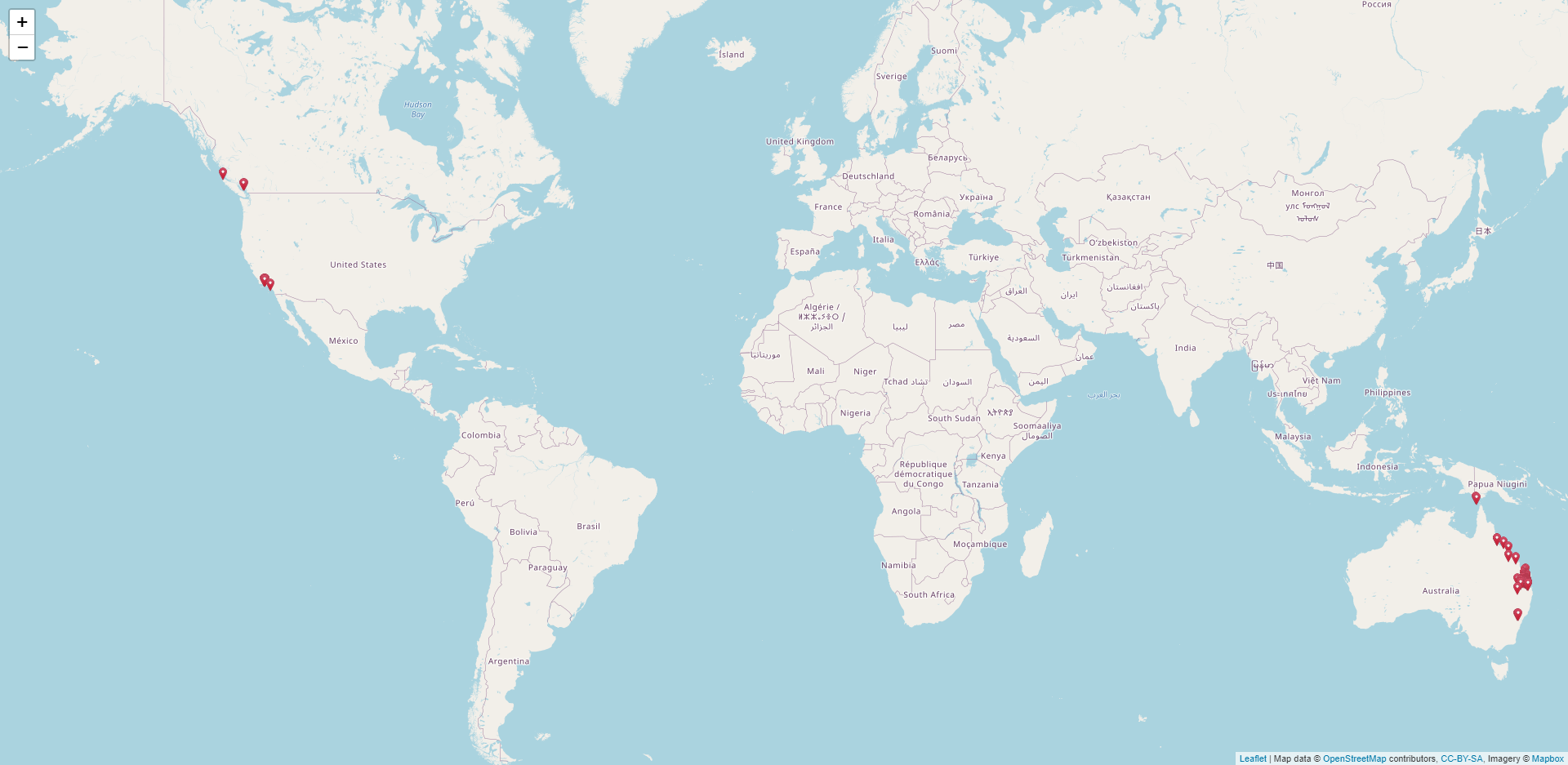Join us to develop your expertise in Teaching for Thinking.
The UQ Thinking Schools Network (UQTSN) is a professional development network designed to create education leaders in Teaching for Thinking. UQTSN draws on the deep professional experience and pedagogical leadership of the UQ Critical Thinking Project. Launched in 2017, the UQTSN now comprises more than 700 members from over 130 educational institutions across Australia, the USA, and Canada.Being part of the Aspiring Thinkers Network has really helped me to bring thinking to the fore in my classroom. I’ve learned efficient and practical ways to increase the focus on student thinking. This has helped to raise student attention, engagement and collaboration, and allowed me to get a clearer picture of each student’s developing understanding in my Mathematics and Science classrooms.
- Teacher, The Gap State High School
The Aspiring Thinkers Network has helped our teachers to increase the focus on student thinking in their classrooms. Professional development delivered by experts in the field, along with the professional collaboration among members of the network has helped our staff implement practical strategies to raise student engagement and increase opportunities for feedback. Our teachers now have more opportunities available to make informal assessments of the progress being made by individual students.
- School leader, The Gap State High School
Teachers are starved with regard to professional development. It is so rare to have an experience like this one. This is the best PD I have ever attended.
- Teacher, ATN US node
You can tell these people [UQCTP facilitators] want to be there. It makes you want to be in their class and even take an ambulance to get there if necessary.
- Teacher, ATN US node
Program structure
Subscription to UQTSN is on a yearly basis. Participation to the program includes compulsory as well as optional modules:
Foundational units
- Two-day professional development workshop
Optional units
- Shared practice sessions
- Masterclasses
- Webinars
- Online activities
Program rationale
Expertise in teaching is typically represented by descriptive accounts of what excellent teachers do. While this approach has the advantage of allowing us to recognise expertise when it appears, it has the disadvantage of inviting mimicry. Descriptive accounts of expertise are not optimal for creating expertise in others or for understanding why some process or strategy works. What we really need to know is what (and how) excellent teachers think. Knowing what they think helps explain why they do what they do and this knowledge can be used to develop the understanding of the novice — and the merely experienced — on their own path to expertise. It is characteristic of expertise, particularly in cognitively complex domains, that expert knowledge is organised into schemata that collectively represent the understanding of the expert. These schemata include knowledge of the types of problems typical of the domain and how they are most effectively and efficiently solved within it.This professional development program offers such a schematic representation of the nature of expertise in teaching for thinking.
Since schemata are comprised of elements and their interrelationships, the first part of the program outlines what key elements are constituent of the expert schema of teaching for thinking and how these elements are interrelated. The explicit elements of the schema are rendered diagrammatically; these include subject area content, cognitive skills and the values and virtues of inquiry. Cognitive skills can be thought of as ‘things we do with knowledge’ (including to create new knowledge) and include well-established skills such as justification, evaluation, analysis and synthesis. These skills make up, in large part, the type of thinking we seek to improve educationally.
Since a skill cannot be improved without feedback, it is also necessary to evaluate thinking so that such feedback can be provided. As the core of the word ‘evaluate’ is ‘value’, it is therefore also necessary to come to an understanding of what we value in good thinking. The program outlines what we value in thinking to allow for the establishment of a selection of criteria for evaluating thinking. In providing the schematic structure of teaching for thinking, a potential means of developing a range of virtues of inquiry also becomes possible. While virtues have a significant profile in many educational institutions, the manner by which they can be developed is less overt. The schema provides a pathway for the development of those inquiry virtues, providing a line of sight from each individual learning experience to the sort of character we wish for our students in the years to come: a pedagogical outcome of the highest importance.
Having established the schematic structure of expertise in teaching for thinking, how this knowledge can be utilised in the classroom is discussed and modelled, with a range of instantiations of the principles and understandings of the schema provided.


